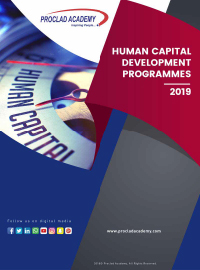Heat Exchangers: Types, Application, Design, Operation & Maintenance
| Ref No. | Dates | Venue | Fee (US$) | |
|---|---|---|---|---|
| ME 006 | 12 - 16 Apr 2020 | Dubai | 4500 | Register |
| ME 006 | 06 - 10 Sep 2020 | Dubai | 4500 | Register |
| ME 006 | 13 - 17 Dec 2020 | Dubai | 4500 | Register |
Heat Exchangers: Types, Application, Design, Operation & Maintenance
Introduction
It has been realized that Engineers of diverse backgrounds and expertise need to develop a sound understanding of fundamental principles and interrelationship between various parameters that govern the well designed and operated heat exchangers.
The Heat Exchangers training course will present the technical and operational features of Heat Exchangers of various designs (shell-and tube (STHE), air-cooled (ACHE), plate (PHE) that play a vital role in thermal power plants and petrochemical and process industries. The training will familiarise participants with various codes and standards and best practices used for design, manufacture, operation and maintenance of heat exchangers. The emphasis in course will be on the best practices for efficient operation, inspection, maintenance and repair of widely used types of heat exchangers: shell and tube, air-cooled, plate compact types.
The key features of the Heat Exchangers training course are:
- Heat Exchangers Design Characteristics
- Understanding of Heat Transfer principles
- International Codes and Standards for fabrication, operation and maintenance
- Problems in operation: Fouling and performance monitoring
- Inspection of corrosion, erosion and structural integrity
Learning Objectives
By the end of this training course, participants will be able to:
- Understand design guidelines and specifications
- Analyze exchanger thermal and hydraulic operational parameters
- Determine the correct selection criteria for sizing of heat exchangers
- Identify the problems in operation that lead to performance deterioration
- Determine correct troubleshooting techniques
Target Audience
This training course provides an overview of all significant aspects and considerations of heat exchangers in accordance with the international standards ASME and TEMA for those who are involved in the sizing, selection, operation, inspection, maintenance and troubleshooting of Heat Exchanging equipment. This includes:
- Project engineers
- Process engineers
- Plant and maintenance engineers
- Pressure vessels engineers and supervisors
Training Methodology
This training course will utilize a variety of proven learning techniques to ensure maximum understanding, comprehension and retention of the information presented. This includes lecture with active delegate participation including discussions. Several workshops will be included with case studies and real examples from engineering practice that will enable the analysis of the root causes as a prerequisite for effective troubleshooting process.
Course Outline
- Heat Exchanger Types and Applications: Choice of Working Fluid
- Heat Transfer Fundamentals and Heat Transfer Rates
- Heat Exchanger Elements: Tube Bundles, Tube Sheets, Baffles and Nozzles
- TEMA Nomenclature of Shell & Tube Heat Exchangers (STHE)
- Air Cooled Heat Exchangers (ACHE) and Plate Heat Exchangers (PHE)
- Condensers, Evaporators and Reboilers
- Flow vs Temperature Difference in STHE
- Thermal Specification of Heat Exchangers: Sizing and Rating
- Hydraulic Design of STE: Fluid velocity and Pumping Power Calculation
- Aerodynamic Design of ACHE: Sizing of Fans and Drive
- Sizing and Specifying of PHE Units: Compabloc Design
- Workshop: Case Studies, Examples & Solutions
- Mechanical Design of Heat Exchangers
- Calculation of Basic Elements of STHE
- Piping Loads on Exchanger Nozzles
- Material selection and Construction of Heat Exchangers
- Fabrication Technologies of Heat Exchangers
- Workshop: Case Studies, Examples & Solutions
- Fouling and scaling in tubes and shells: Problem Solutions and Remedies
- Inspection Techniques of Vital Elements of Heat Exchangers
- Corrosion & Erosion Reduction Techniques, Fitness for Service Analysis (FFS)
- Control in Operation: Tube Vibration & Troubleshooting
- Cleaning, Maintenance and Repair Techniques: Tube Plugging and Re-tubing
- Workshop: Case Studies, Examples & Solutions
- Performance Monitoring and Testing
- Performance Validation
- Heat Transfer Augmentation Techniques
- Tubes with external and internal fins
- Heat Integration Basics: Pinch Technology
- Workshop: Case Studies, Examples and Solutions


